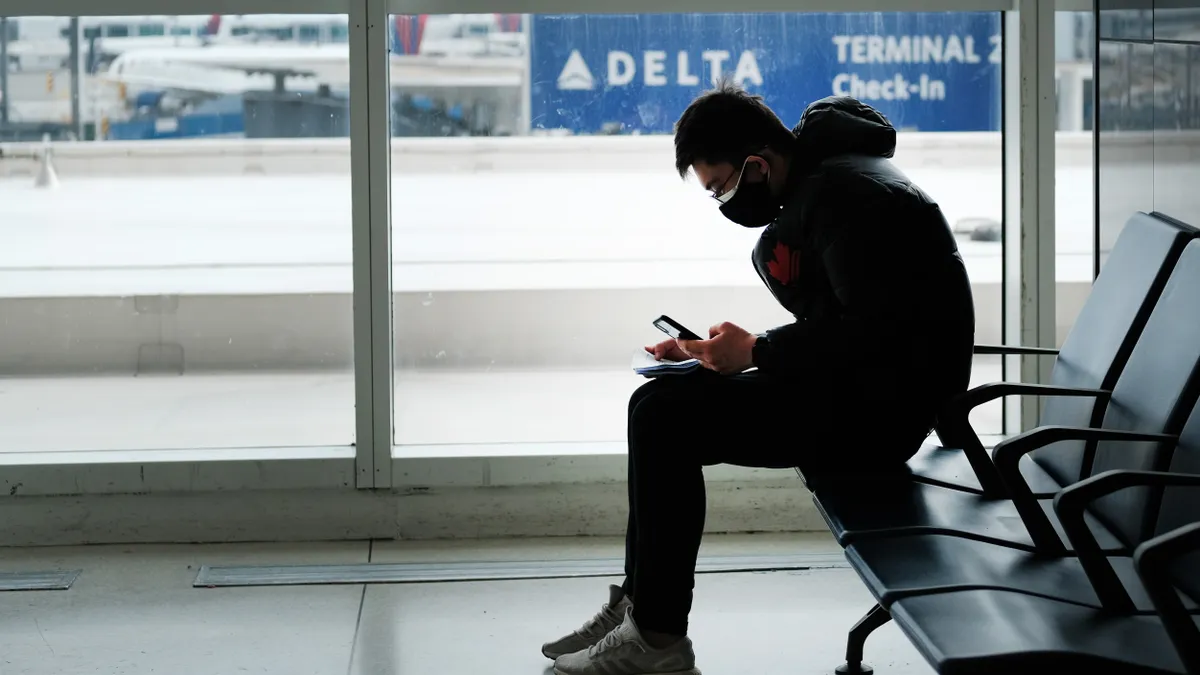Dive Brief:
- Federal agencies have extended and clarified flexibilities for international students attending U.S. colleges during the 2021-22 academic year. They also eased some travel restrictions.
- Higher education experts say the decisions will allow students and schools to plan for the upcoming academic year, but they caution that visa processing backlogs could be a hurdle.
- International student enrollment took a hit last fall, exacerbating a pre-pandemic contraction.
Dive Insight:
U.S. Immigration and Customs Enforcement last week renewed flexibilities granted early in the pandemic to international students and their colleges.
Among them is the ability for students enrolled as of March 9, 2020, to continue taking classes while based in the U.S. or reenter the country, even if those courses are entirely online. Those students would typically only be allowed to take one online class per term, or none, depending on their visa type.
The latest guidance offers additional clarification: Students not enrolled by the March date can enter the U.S. if their program has an in-person learning requirement. Previous guidance stated only that students not yet enrolled couldn't enter the country if their classes were entirely online.
Although many colleges plan to reopen in person this fall, this flexibility will be "very helpful" in letting them adapt if coronavirus case counts rise or they otherwise need to have some classes online, said Sarah Spreitzer, director of government relations and public affairs at the American Council on Education.
The U.S. Department of State also recently pulled back travel restrictions for students and academics coming to U.S. campuses this fall from several countries, including China and India, the two biggest sources of international students. The department previously relaxed such restrictions for students from many European countries.
The restrictions prevented students from being able to travel directly to the U.S. In a March letter to the heads of the State and Homeland Security departments, ACE and more than three dozen higher ed groups asked officials to exempt students coming from countries subject to such rules.
They also asked officials to ensure "the timely and efficient" processing of visa applications and to waive the requirement for in-person interviews or hold them online if consulates can't open on time. Consulate closures are delaying processing, Spreitzer said, and even once they reopen, a backlog of applications could bog it down.
There's some hope. The U.S. Embassy and consulates in China — which accounts for a third of international students in the U.S. — were scheduled to resume student visa appointments this week.
Joann Ng Hartmann, a senior director at international educators association NAFSA, has heard anecdotally that student visa approvals have been slow. Waiving the in-person interview or allowing it to happen online "can at least get visa applications moving again," Ng Hartmann said. NAFSA signed on to ACE's letter.
The pandemic is dealing a blow to international student enrollment. The number of foreign students studying at U.S. colleges fell 16% last fall, with a 43% drop among new students, according to a survey of more than 700 schools from the Institute of International Education. This followed the first decrease in the total number of international students in the U.S. in more than a decade, IIE found.
The effects are expected to linger. Analysts have said ongoing travel restrictions, competition from other countries and consequences of the Trump administration's hard-line immigration policies would be a drag on recovery.














